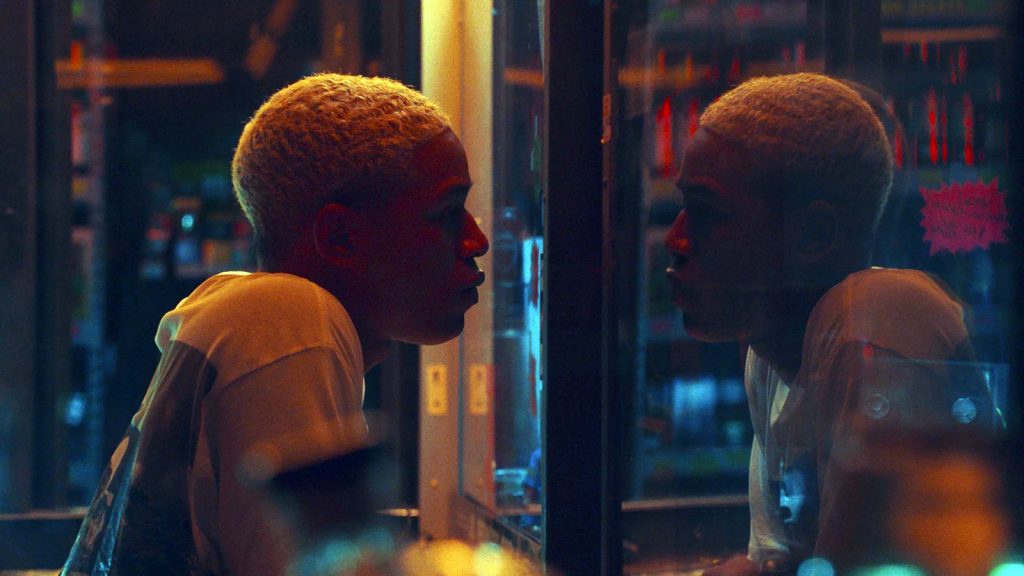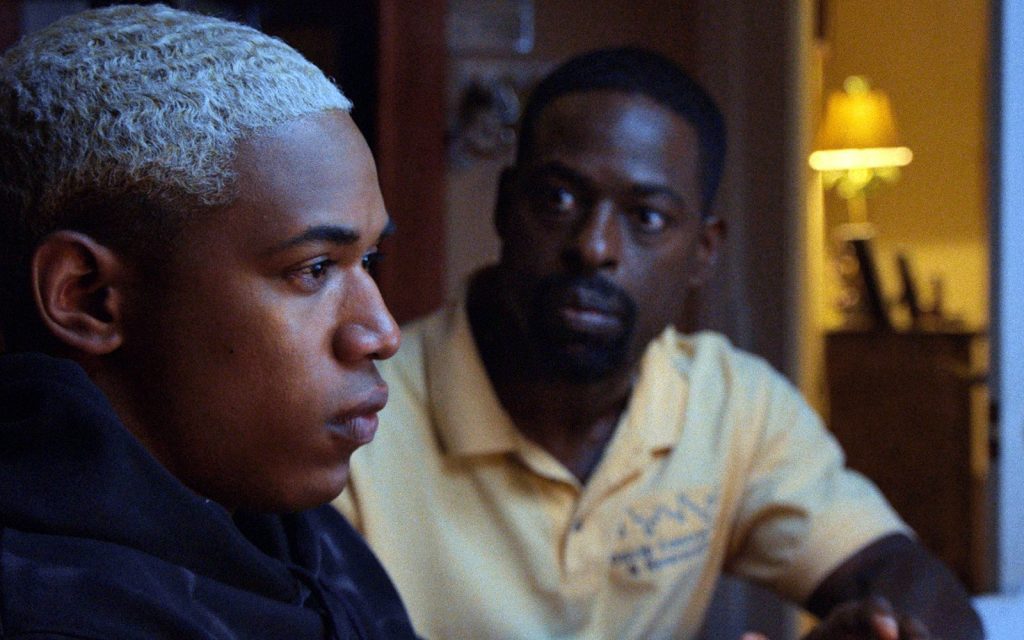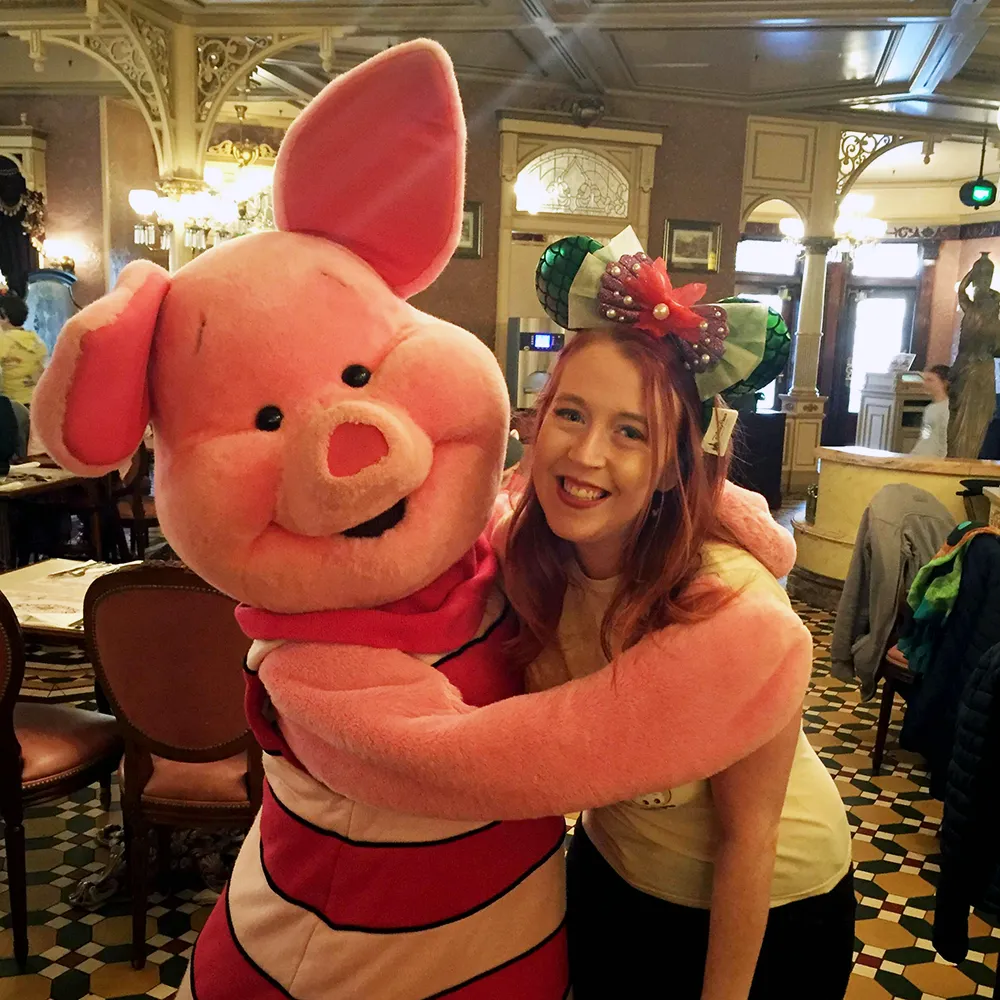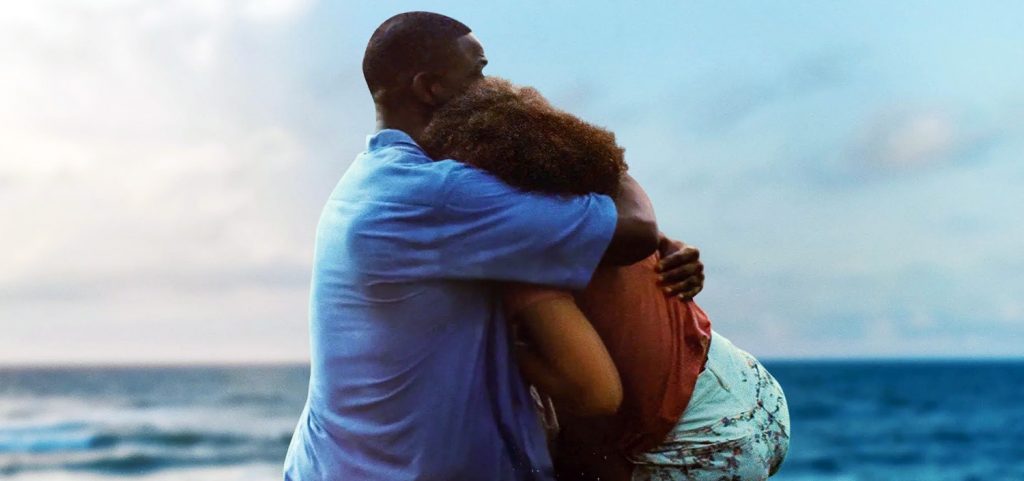It’s very difficult to write about Waves without giving away the complex change within the center of the film. The change is so vital, as at it’s core, Waves is two films.
Focusing on a suburban African American family, we start with son Tyler. Tyler is hiding a serious injury that could affect his chances at a wrestling scholarship and is misusing prescription drugs to make it through. Combined with partying and an intense relationship, the film shows us his day to day life and the pressures and trials and tribulations of being a black teen in America. Add to this his overbearing father, constantly pushing him to work harder, train longer.

Kelvin Harrison is astonishing in the role, which could not be more different to his role earlier this year in Luce. He handles the anger and frustrations easily and makes Tyler feel a fully formed character. Stirling K Brown also excels as his overbearing father, far removed from the wonderful character Randall he’s known for playing in NBC’s This Is Us.
Part way through the film the story focus switches to younger sister Emily and her role within this family, how the actions of her brother and father have impacted her – always in the background, watching and listening, but never actually taking part in life. Upon a chance meeting with Luke (indie darling Lucas Hedges), she starts to grow and change in various ways.

Waves is a complex film which in one moment can be wild and angry and the next quiet and solitary. It shows the different dynamics within family life and how one small action can have wider implications throughout.
Harrison is the standout performance, but everyone brings their all, and expect Taylor Russell (Emily) to be cropping up a lot more in the future. But beyond the story and actors, it is the daring cinematography that really takes the film to a further level. As various situations change, the screen can literally change before your eyes, with the aspect ratio and colours changing through the film. It’s done seamlessly, never jarring and signifies the wild rush and heartbreak of teenage hood.
Waves is not perfect, and far too long. By focusing on the two stories, it feels somewhat unbalanced, as neither story feels complete, but both are strong and moving in different ways. It’s a different kind of film, that is beautiful to view and the performances equally make it worth a watch.


Ex film teacher and frequent couch potato. I try and see at least one new release a week, but I’ve somehow got to 30 without having seen The Godfather?







